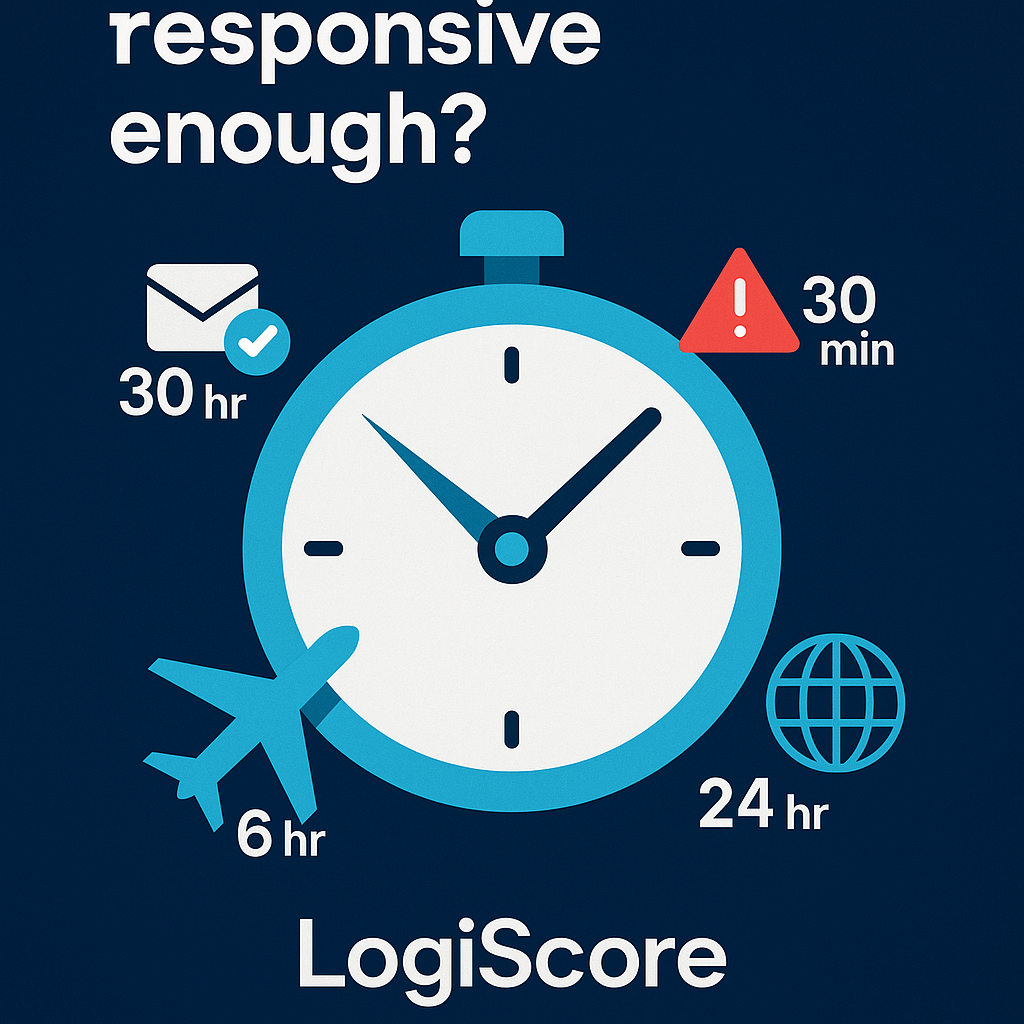Responsiveness in Freight Forwarding: The Overlooked KPI Driving Supply Chain Success

When shippers evaluate freight forwarders, the usual yardsticks come to mind: cost competitiveness, service portfolio, technology platforms, and global reach. Yet in practice, one factor consistently determines whether partnerships succeed or fail: responsiveness.
Why Responsiveness Matters
Industry studies confirm this reality. A 2023 McKinsey & Company survey on supply chain resilience noted that more than 70% of shippers ranked “speed of response to issues” as a top-three factor in forwarder performance. Similarly, the Council of Supply Chain Management Professionals (CSCMP) highlights responsiveness as a cornerstone of customer experience in logistics, often outweighing price once baseline competitiveness is met.
Responsiveness matters because:
- Decisions are time-bound: Missing a sailing, booking slot, or aircraft capacity can translate into thousands of dollars in extra cost. Timely responses directly prevent revenue leakage.
- Risk is dynamic: Customs detentions, port congestion, or strikes require fast escalation. According to FIATA, delays in communication are among the top three causes of supply chain disputes.
- Trust is fragile: Even a short acknowledgement — “We have your request, response by 3pm” — signals accountability. This reassurance often carries as much weight as the eventual answer.
Setting Benchmarks
While the industry lacks formal service-level standards, common benchmarks used by shippers include:
- 30 minutes: Acknowledgement of quotation or information requests.
- 6 hours: Full response to rate requests within the same region.
- 24 hours: Full response to cross-regional rate requests (e.g., Asia–US, Europe–Latin America).
- 30 minutes: Response time for emergencies (shipment delays, customs escalations, compliance flags).
These benchmarks align with service levels promoted in many Reputation+ and Insights contracts between multinational shippers and forwarders.
Beyond Systems: The Human Element
Technology — from customer portals to chatbots — helps streamline responsiveness. But according to a 2022 Transport Intelligence (Ti) report, the strongest driver of shipper satisfaction remains human interaction: how account managers, operations staff, and customer service teams communicate under pressure.
Responsiveness, therefore, is not just a process metric. It reflects culture. Organizations that empower staff to acknowledge issues quickly, set expectations transparently, and take ownership tend to outperform those that hide behind automated updates or bureaucratic structures.
A Competitive Differentiator
In an era where freight rates are increasingly commoditized, responsiveness has emerged as a competitive differentiator. Forwarders who respond faster than peers not only retain clients but often capture premium business where agility is valued over marginal cost differences.
Conclusion
Responsiveness is not a “nice-to-have.” It is a critical performance indicator that directly impacts cost, customer loyalty, and supply chain resilience. For shippers, building responsiveness expectations into RFQs and service contracts can help filter true partners from transactional providers. For forwarders, treating responsiveness as a measurable KPI may be the simplest path to differentiation in an increasingly crowded market.
Leave a Reply
You must be logged in to post a comment.